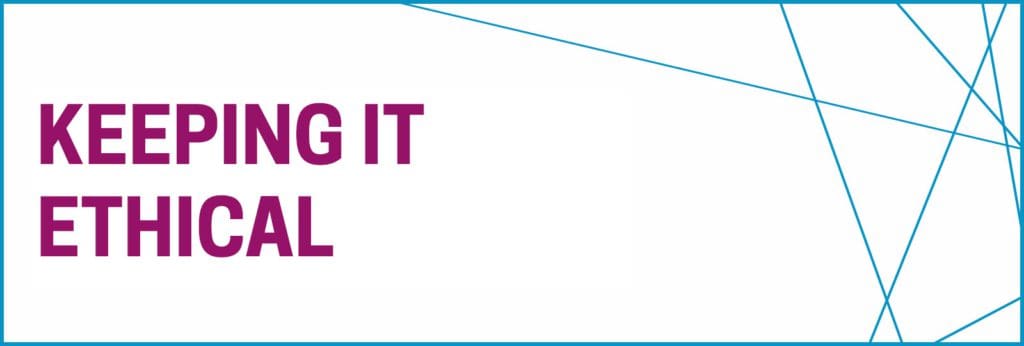Keeping it Ethical is our weekly blog series highlighting the 33 Principles for Good Governance and Ethical Practice. Throughout the series, we hope to highlight the importance of each Principle, the helpful resources associated with it, and learn more from you about how you’ve incorporated these Principles into your charitable organization.
This week, we introduce Ethical Emani, our in-house expert on all things Principles and #npethics. In need of practical advice on a moral conundrum? Hit an ethical work dilemma? Looking for a voice that cuts through sector jargon? Search no more! Ethical Emani is the heroine we all need and she’s here to hit us with nitty gritty, real-world truth. To kick things off, Emani takes on a recurring issue for all organizations – conflicts of interest.
***
Dear Ethical Emani,
Our museum’s annual fundraising gala is coming up in just a few months. The budget this year is extremely tight. Luckily, one of our board members works for an organization that owns a fabulous building. They have offered to have their event space manager work with us to confirm a rental at a 75% discount! Will taking this offer jeopardize our gala or, worse, our nonprofit status?
Thanks,
Anonymous Ashley
***
Dear Anonymous Ashley,
You are nervous for all the right reasons. The stakes are higher since it involves, gasp, – a board member. Don’t sweat it though, this is a simple ethical snag. In fact, the entirety of Principle 3 is dedicated to thinning out that overgrown, anxiety forest where conflicts of interest go to thrive.
Before you panic and bolt away from this enticing opportunity, let’s follow the logic train down the plausible strategies.
Consult your organization’s conflict of interest policy. Federal laws and regulations do not mandate that organizations have a conflict of interest policy in place. Still, most nonprofits are required to report on their annual Form 990 whether their organization has this policy in place, whether they regularly enforce this policy, and if so, how it is enforced. Keep in mind, that when filing the initial IRS Form 1023, you know that pesky form used to gain 501(c)(3) status, an organization must indicate whether it has a conflict of interest policy in place and if not, how it will handle conflicts of interests. When in doubt, turn to the rule makers. Here is their guidance on the subject.
If you do not have a conflict of interest policy, get it together! Independent Sector has a sample conflict of interest policy on our website, along with other associated resources. Share a template with the right people at your organization and you will be the new ethics champion. Once you have an organizational policy in place, ensure there is a set expectation for all board and senior staff members to sign the policy upon joining the organization and at the beginning of every board year. The policy will dictate mechanisms for disclosure on any material conflicts of interest or family/business relationships.
And when all else fails, be transparent! According to the law in most states, board members have a duty of loyalty that requires them to put the interests of their charitable organization before their own personal interests and those of any other person/organization. It is important to understand that a conflict of interest can involve the appearance of a conflict, as well as an actual conflict. It is important to avoid both types. The easiest way to do that? Disclose the conflict or possibility of the conflict.
You had a strategy all along! By showing all of your cards, you will no longer need to worry about whether there is or is not a conflict. Let your board make an informed decision based on the facts.
Gather the facts below:
- Have you confirmed that the board member will not receive a percentage of the revenue earned from the rental or any other financial gain associated with the rental fee?
- Is the rental rate being charged commensurate with the rate charged to other organizations that have rented the same space (fact check that discount)?
- Are there any other real or perceived conflicts of interest?
Now you have the information, you have shared it with your board, and they have affirmed no conflict exists. Yippee! Almost free event space, here we come. Or, worst case, they caught a conflict and you are lauded for your ethical acumen.
Either way, I know you’ll roll up to your next fundraising planning meeting like:
I will be looking out for my invite to your fundraising gala!
Ethically yours,
Emani
___
Learn more about Principle 3 and the associated resources.
Are we missing a good resource associated with this Principle? We want to hear that, too. Leave your thoughts in the comments and let us know what you think. You can also use #npethics on social media.



